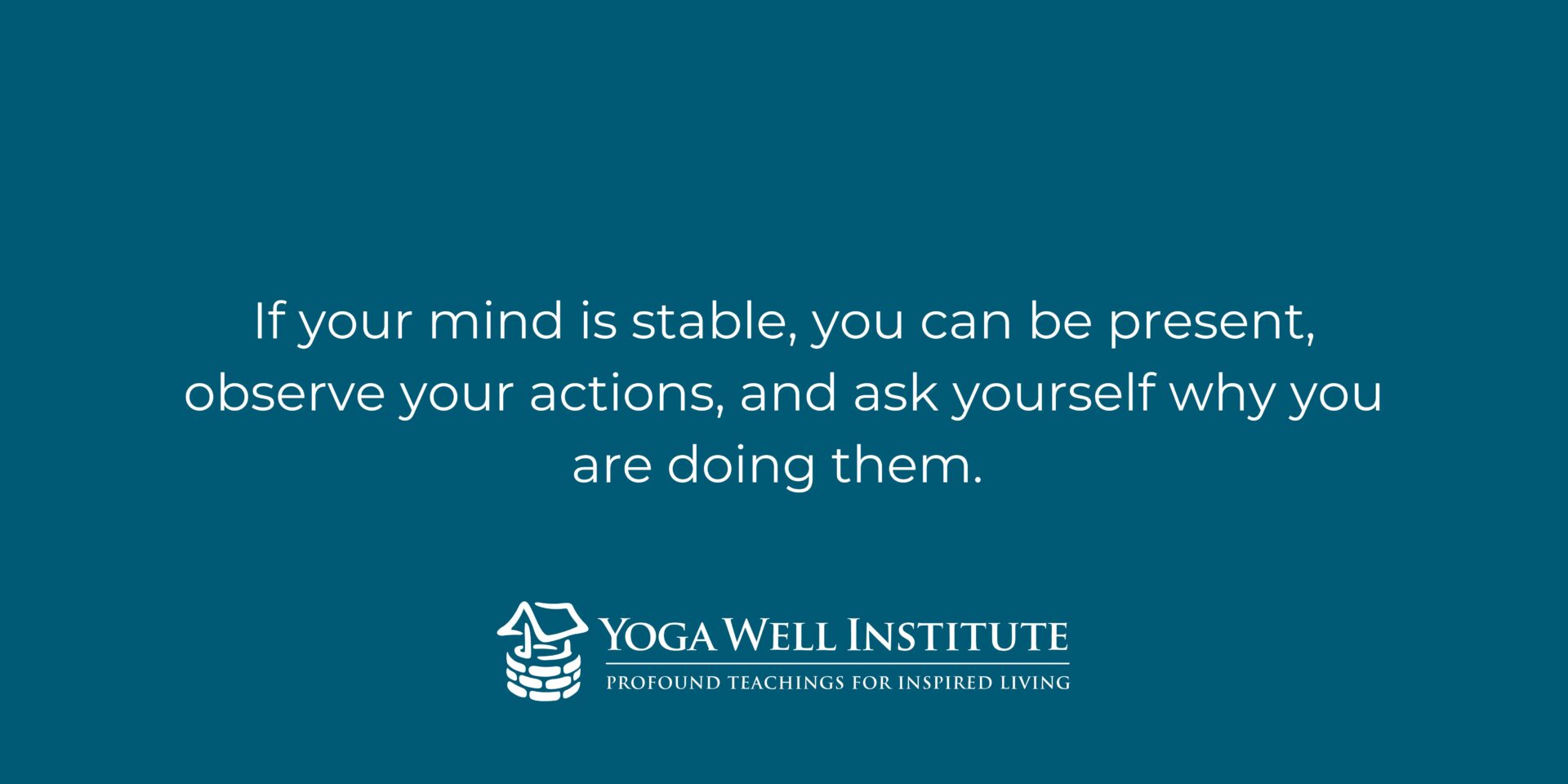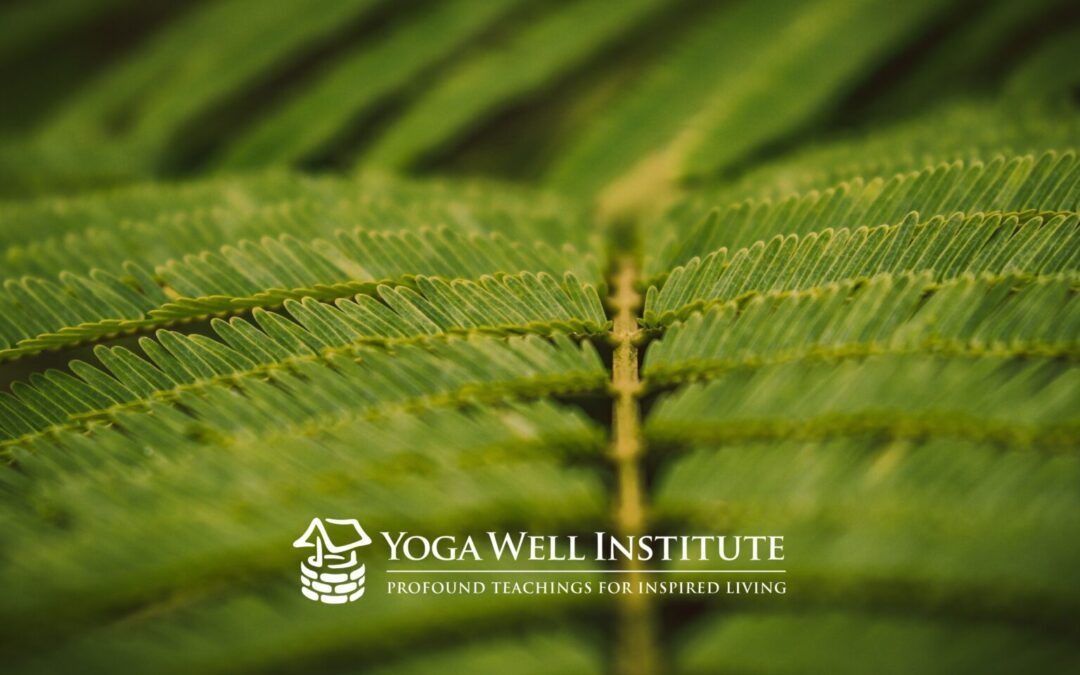Yoga in the West has an abundance of techniques available on the internet, or at your neighborhood Yoga studio, to anyone who wants to try them. The ‘how’ of doing physical postures is everywhere. What’s missing in mainstream Yoga is the ‘why.’ There are actually reasons to use certain techniques at certain times during your practice–during your day or lifespan–and this seems to have gotten lost. We are missing the context of Yoga practice. Reading Patañjali’s Yogasūtras provides important context for your Yoga practice.
The Importance of the Yogasūtras
The Yogasūtra is just 195 sentences long. Why would such a short text be so important to Yoga? Because it describes the overall path of Yoga, including its goals, results, and methods. It describes how to practice Yoga from the very beginning to the very end of your life, as well as what may happen as a result of practicing. In the first chapter, Patañjali describes the practice of Yoga as the effort to be present. This means that you can practice Yoga any moment that you’re conscious. You don’t need a mat, a 108-degree practice room, or a teacher pushing on your butt to deepen a stretch. You just need to make the effort to be attentive to whatever you’re doing.
The Point of Yoga Postures
If, as Patañjali describes, sustained attention is so important to Yoga, you might be wondering what the role of postures in Yoga is. Postures are important, but they are only one aspect of the path of Yoga. Yoga believes that while mind and body are different, they are inseparable. Whatever happens with the body affects the mind and vice versa. So even though physical postures are obviously influencing the body, Yoga holds that they are also strongly influencing the mind. Patañjali’s descriptions of how practicing postures takes into account their effect on the mind as well. This is an example of how, if you want to get the most out of your physical Yoga practices, it’s very helpful to understand the relationship between them and the overall goals of Yoga.
The Goals of Yoga
Broadly speaking, Yoga has two major goals.
1. The first goal is to develop a stable attention and the capacity to be continually present with whatever you are doing.
2. The second goal is to experience who you are in a deep and essential way — your true self or nature — and to develop the capacity to act from there.
The first goal is required to achieve the second goal and, according to Patañjali, can be developed by bringing your system into balance.
Develop a Stable Mind
The role of āsana/postures and other initial stage practices in the Yoga process is to bring your overall system into balance, including your body, breath, and emotions. When practiced according to Patañjali’s instructions, the practice of āsana/postures will bring the different elements of your system into balance. Patañjali describes how Yoga practices do that in the middle of the first chapter and again towards the end of the second chapter. All the different techniques of Yoga, including breathing, meditating, chanting and ethics, as they relate to the first goal of Yoga, are intended to help develop the balance that is the key to establishing a stable attention.

The Blessing and Curse of Patterns
This brings us to the second goal of Yoga; to experience who you truly are. Patañjali describes this goal in different ways, here we will address the contrast he makes between actions that originate from our patterns and actions that are authentic expressions of ourselves. Patterning is a main topic of the Yogasūtras. Patterning can be a blessing and a curse. In and of themselves, patterns are neither good nor bad; they’re just tools. Without patterning, you wouldn’t understand language and wouldn’t be able to read this right now. But the curse of patterning comes from falling into tendencies in our reactions to our environment and situations. When patterns dictate how we respond or interact with a person or situation it means that those actions are not authentic expressions of who we are.
Experience Your True Nature
Yoga practices, physical postures, breathing, etc. are also related to this second goal in a number of ways. For example, in the 2nd chapter, Patañjali describes how to use the stable attention established through Yoga practices to understand your true nature in the midst of your actions. Your intuition or inner knowing is the expression of your true nature, and it often gets overridden by your patterns. If your mind is stable, you can be present, observe your actions, and ask yourself why you are doing them. As that happens, it will be possible to see your patterns and the way they influence your actions. You will be able to ask ‘is this action coming from me or is it coming from my patterns?’ and, as you refine this skill, to reduce the influence of your patterning and increase the authenticity of your actions. This process can play out in daily life and also in the practice of postures and breathing, etc. which is another example of why studying the Yogasūtras is so useful.
The Importance of Studying
Yoga as a path is an enormous world with innumerable aspects and techniques and experiences. At the same time, it all comes together as a coherent system. The physical practices, breathing, meditation, ethics, and principles all fit together to form a complete path. Studying the Yogasūtras is the best way to understand the threads that hold the whole system together and provide the context for practice.
Explore the richness of Yoga Philosophy
If you are ready to explore the depths of Yoga Philosophy and experience the influence of your practice, check out the Yoga Well Archives – On Demand. The Yoga Well Archives — On Demand offer students of the Viniyoga Tradition, both new and old, an opportunity to explore a wide array of past Yoga Well Institute offerings. Topics demonstrating the enormous breadth and depth of Viniyoga include Meditation, Prāṇāyāma, Yoga Therapy, Āyurveda and much, much more. The Yoga Well Archives – On Demand are meant for all practitioners on the path of deeper study.
Listen to the Podcast
You can also find us on Spotify, Apple Podcasts, Google, Amazon and the Yoga Well Institute! This Yoga Well Podcast shares fresh perspectives on what Yoga is, how it transforms the body and mind, and liberates your life!




